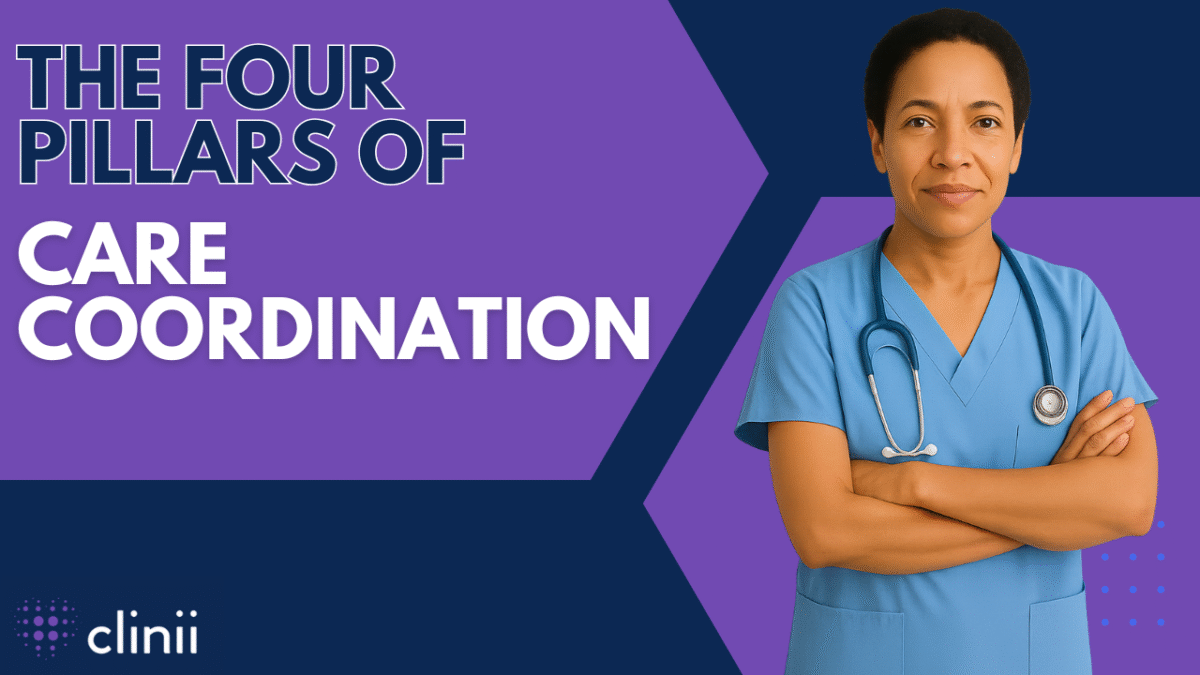Chronic Care Management and Coordinated Care Programs
Comprehensive Care Programs to Optimize Patient Outcomes
Clinii helps healthcare providers streamline care for patients with chronic and complex conditions. Our platform is built for real-world use — combining patient engagement tools, care plan automation, and EHR integration. From onboarding through billing, Clinii simplifies every step. Whether you’re implementing a Chronic Care Management program or scaling broader care workflows, we deliver scalable, compliant support.
Explore Programs
APCM
Advanced Primary Care Management (APCM)
Clinii’s Advanced Primary Care Management (APCM) services provide healthcare teams with the tools and support needed to deliver high-quality, patient-centered care.
Learn moreAWV
Annual Wellness Visit (AWV)
Clinii’s Annual Wellness Visit (AWV) program helps providers deliver preventive care assessments, identify health risks early, and improve Medicare reimbursement efficiency.
Learn moreBHI
Behavioral Health Integration (BHI)
Clinii’s Behavioral Health Integration (BHI) services provide seamless collaboration between primary care providers and mental health specialists, improving access and driving better overall health outcomes.
Learn moreCCM
Chronic Care Management (CCM)
Clinii’s Chronic Care Management (CCM) solutions enable providers to deliver personalized remote support, track patient progress, and maximize CMS reimbursements—all while reducing hospital readmissions.
Learn moreCHI
Community Health Integration (CHI)
Clinii’s Community Health Integration (CHI) program connects patients to local resources, care coordinators, and preventive health initiatives—helping enhance equitable access, patient engagement, and public health outcomes.
Learn morePCM
Principal Care Management (PCM)
For patients managing a single high-risk chronic condition, Clinii’s Principal Care Management (PCM) program provides targeted support, care coordination, and specialist oversight.
Learn moreRPM
Remote Physiological Monitoring (RPM)
Clinii’s Remote Physiological Monitoring (RPM) solutions empower providers to track real-time patient vitals, detect early health risks, and reduce hospital visits through continuous remote monitoring.
Learn moreRTM
Remote Therapeutic Monitoring (RTM)
Clinii’s Remote Therapeutic Monitoring (RTM) solutions enable providers to track medication adherence, respiratory health, musculoskeletal recovery, and behavioral therapy progress remotely.
Learn moreTCM
Transitional Care Management (TCM)
Clinii’s Transitional Care Management (TCM) services support providers in coordinating post-discharge care, optimizing Medicare reimbursements, and improving patient recovery outcomes.
Learn moreVBC
Value-Based Care (VBC)
Clinii’s Value-Based Care (VBC) solutions help providers transition from fee-for-service to outcome-driven reimbursement models.
Learn moreAI-Driven Enhancements Across the Care Journey
Enrollment → Care → Communication → Coordination → Billing
85% reduction in outreach time
Choosing the Right Care Program for Your Patients
Clinii helps providers select and layer care programs—chronic, transitional, behavioral, or preventive—based on patient needs, eligibility, and goals. With AI analytics and EHR integration, we identify eligible patients, streamline enrollment, and optimize compliance for better outcomes.
How Clinii Supports Implementation
- Fast, Frictionless Setup
- Automation at Every Step
- Lower Overhead, Better Outcomes

The Four Types of Care Coordination Explained
Clinii’s Care Program FAQs
How do Clinii’s care programs improve patient outcomes?
Clinii’s programs use AI-driven insights, data integration, and personalized patient engagement to enhance preventive care, reduce hospital readmissions, and improve overall wellness
Who can benefit from these care programs?
Clinii’s solutions are designed for physician groups, ACOs, IPAs, independent care management providers, and other healthcare organizations focusing on value-based care. Additionally, patients benefit immensely from having optimized and tailored care programs in place, ensuring they receive the right support at the right time.
How does Clinii integrate with existing EHR systems?
Clinii seamlessly integrates with major EHRs like Epic, Cerner, eClinicalWorks, and athenahealth, ensuring smooth data flow and minimal disruption to your workflow.
How is Clinii’s pricing structured?
Clinii’s pricing is based on a per-patient model, rather than charging separately for each care program type. This allows you to enroll each patient in multiple programs without additional costs for layering services. With this structure, you’re never restricted in assigning the best and most relevant programs to each patient. Additionally, Clinii automates billing to ensure providers are reimbursed appropriately for the care plans they implement, reducing administrative burden and improving revenue capture.
How does Clinii help with compliance and documentation?
Clinii automates documentation and reporting to ensure all patient interactions and care plan updates meet CMS and other regulatory requirements. This reduces administrative workload while improving audit readiness and compliance. Additionally, Clinii automates billing to ensure providers are reimbursed appropriately for the care plans they implement, reducing administrative burden and improving revenue capture.
Can Clinii’s care programs be customized for different patient needs?
Yes! Clinii’s platform is highly adaptable, allowing providers to tailor care programs based on individual patient conditions, risk levels, and care goals.
How does Clinii reduce administrative workload for healthcare providers?
Clinii automates key processes such as patient enrollment, eligibility verification, documentation, and billing, allowing healthcare providers to focus on patient care instead of time-consuming administrative tasks. Additionally, Clinii automates billing to ensure providers are reimbursed appropriately for the care plans they implement, reducing administrative burden and improving revenue capture.
How can I get started with Clinii’s care programs?
Getting started is easy! Schedule a demo with our team, and we’ll walk you through the setup and onboarding process.
